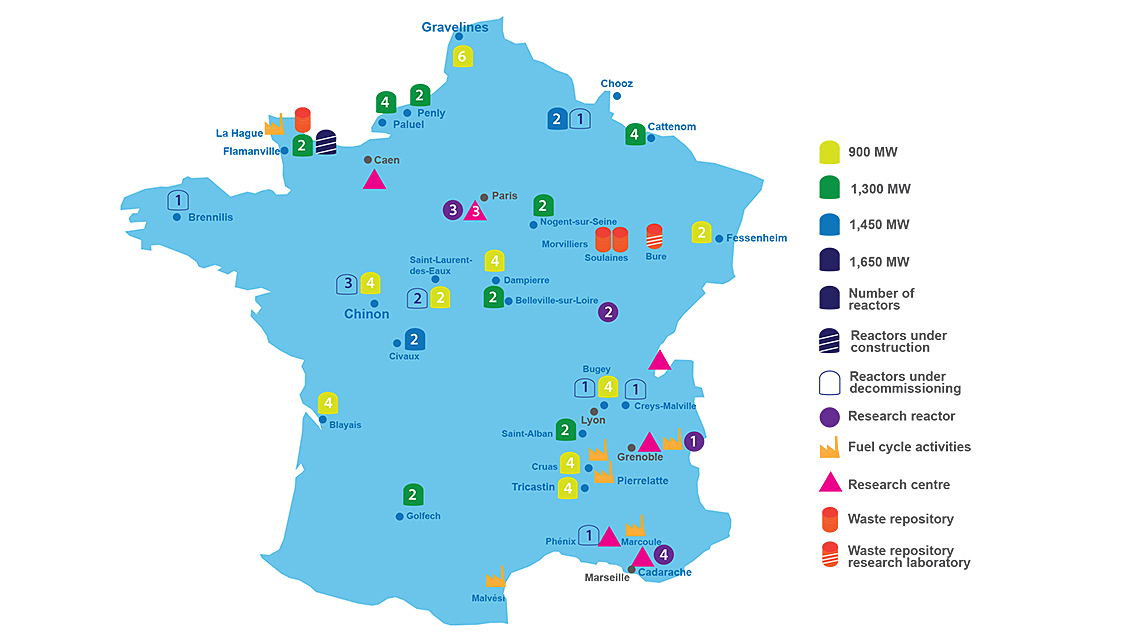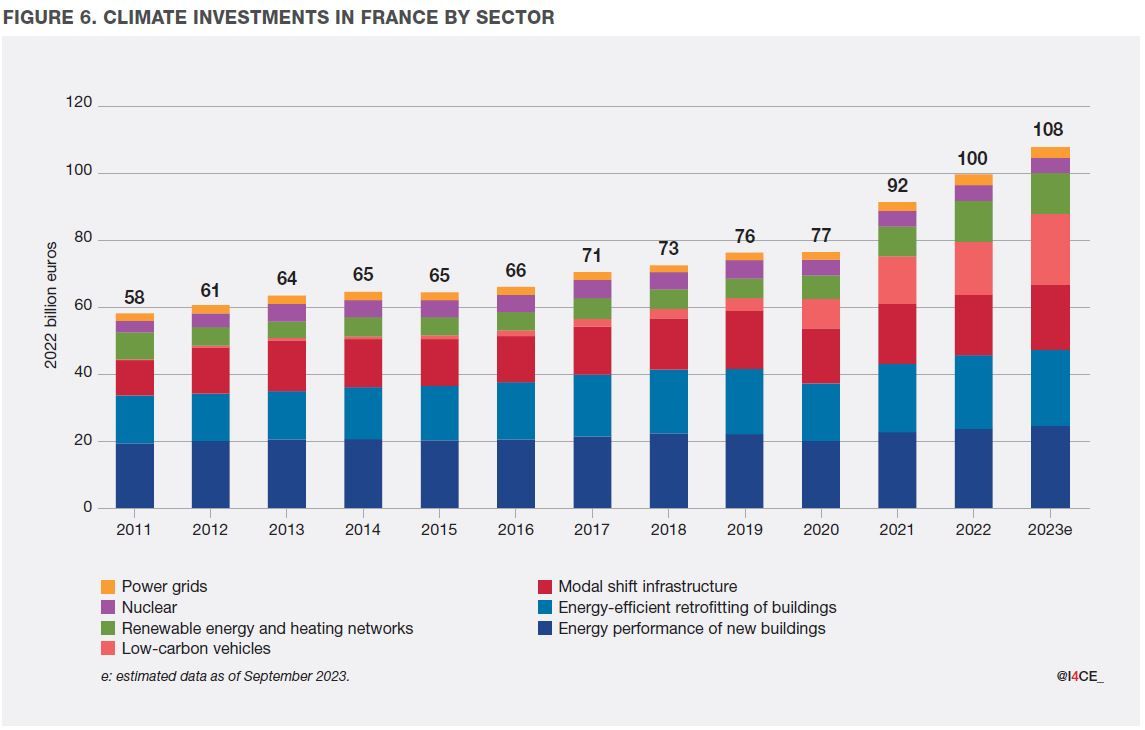France's Energy and Climate Policy in 2025: Progress, Pitfalls, and the Path Forward
Introduction
As France steps deeper into its climate transition, recent policy shifts in 2025 signal a renewed emphasis on energy sovereignty and decarbonization. Yet, while the nation aims high, the road ahead is paved with complex trade-offs.
Here’s a breakdown of recent developments in France’s energy and climate policy, including the controversial revival of the Gardanne biomass plant, followed by an analysis of key concerns for policymakers, citizens, and climate advocates.
| La centrale biomasse de Gardanne. (Photo : Clémentine Vaysse) |
Key Developments
1. Nuclear Power Takes Center Stage
In early 2024, France introduced an energy bill reinforcing its commitment to nuclear energy. With plans to construct at least six new reactors and potentially up to 14, this marks a definitive pivot away from fossil fuels. However, the bill notably omits firm targets for renewable energy expansion, which has drawn criticism from environmental groups and green energy advocates.
 |
| Map of French nuclear facilities (Source: EDF, CEA), Credit: IAEA.org |
2. Fossil Fuel Phase-Out Targets
In alignment with EU climate goals, France has announced an ambitious roadmap to cut fossil fuel usage in final energy consumption from 60% in 2022 to 42% by 2030, and further down to 30% by 2035. This is part of a broader strategy to reduce greenhouse gas emissions by 50% (from 1990 levels) by 2030.
 |
| Source dataset: nrg_bal_s, Credit: ec.europa.eu |
3. Record Investment in the Green Transition
France invested €100 billion in climate-related initiatives in 2022 alone. These investments support sectors like electric vehicles, heat pumps, solar power, offshore wind, and rail infrastructure such as the Grand Paris Express. Public funds accounted for roughly a third of this total.
 |
| Credit: i4ce.org |
4. Science Diplomacy: "Choose Europe for Science"
France and the European Union have launched initiatives to attract researchers, especially those affected by U.S. policy shifts, to pursue climate and energy research in Europe. This move aims to strengthen innovation ecosystems and position the EU as a global hub for sustainable science.
5. Gardanne Biomass Plant: Controversial Restart
After years of inactivity, the Gardanne biomass power plant will resume operations in January 2025, under an agreement between the French government and GazelEnergie. The state will invest €800 million over eight years to buy electricity at a guaranteed rate (€250–€260/MWh), preserving 500 jobs. However, the plant's reliance on imported biomass (including from Brazil) and its high cost have sparked fierce criticism.
| France: restart of the Gardanne biomass power plant scheduled for early 2025, Credit: energynews |
Analysis: What Should We Be Concerned About?
Nuclear Dominance May Stifle Renewable Growth
While nuclear energy supports France's carbon neutrality goals, the lack of detailed renewable targets in current legislation risks sidelining innovation and investments in solar, wind, and other clean technologies. A more balanced strategy is crucial to ensure energy diversification.
Public Funding vs. Market Efficiency
The Gardanne case raises broader questions about the role of public money in energy markets. Subsidizing power at significantly above-market rates may protect jobs and stabilize energy supply in the short term, but it risks inefficiency and public backlash over spending priorities.
Environmental Integrity of Biomass
Biomass is often marketed as renewable, but France's reliance on imported wood chips, especially from countries like Brazil, raises questions about deforestation and the carbon footprint of transportation. Policymakers should strengthen domestic sourcing and implement stricter sustainability standards.
Transparency and EU Compliance
The Gardanne funding agreement reportedly was not notified to the European Commission, potentially violating EU state aid rules. This could invite legal challenges and undermine public trust in the transparency of France’s climate strategy.
Long-Term Vision vs. Short-Term Politics
France's energy policies reveal a tension between urgent economic needs and long-term climate goals. Preserving industrial jobs, reducing energy imports, and reaching emissions targets must be integrated into a coherent strategy that supports both environmental and social resilience.
International Comparison
France's nuclear-heavy strategy contrasts with Germany's accelerated renewable rollout and nuclear phase-out, while Nordic countries like Sweden and Denmark focus on wind and hydropower combined with smart grids. The UK's balanced approach includes offshore wind leadership and scaled-up solar initiatives. France's distinct path could lead to energy security, but risks isolation in innovation trends if renewables are neglected.
Expert Opinions
According to Agnès Pannier-Runacher, France's Minister for Energy Transition: "Our investment in nuclear and low-carbon technologies reflects our ambition for sovereignty and climate leadership."
However, the NGO Réseau Action Climat responded critically, stating: "Without legally binding targets for renewables, this bill sends a contradictory signal about France's true commitment to a green future."
Public Engagement and Policy Recommendations
Citizens can play a crucial role by:
- Participating in local energy cooperatives or community solar programs
- Attending public consultations on regional climate plans
- Voting in municipal and EU elections with climate policy in mind
We recommend policymakers:
- Introduce binding renewable energy targets by 2030
- Improve transparency on public energy subsidies and notify the EU Commission
- Invest in domestic biomass sourcing and circular bioeconomy projects
Conclusion
France stands at a pivotal moment in its energy transition. The decisions made in 2025 will shape not just how the country powers itself, but also how it balances environmental sustainability with economic stability and global leadership. As the climate clock ticks, France must strive for policies that are innovative, inclusive, and internationally aligned.


